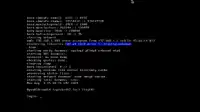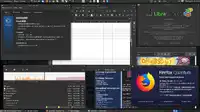10 April 2023
OpenBSD version 7.3
Significant changes:
* Add kernel support for waitid(2), wait for process state change
* SMP - Unlocked mmap(2), munmap(2), and mprotect(2)
* Introduced clockintr(9), a machine-independent clock interrupt scheduler ; switched all architectures to use the new subsystem
* Introduced retguard for amd64 system calls
* More aggressive randomisation of the stack location for all 64-bit architectures except alpha
* Enhanced memory and process security
* Relinking of network exposed daemons at boot time
* Improved hardware support, including new arm64 variants and numerous network and graphics driver updates
* More flexible network configuration, now supporting lladdr-based config
* Various improvements for VMM/VMD (ex: linux / docker images now are better supported)
* Support for disk encryption in the installer
* X11 Mesa shader cache enabled
* LibreSSL version 3.7.2 ; OpenSSH version 9.3 ; OpenBGPD 7.9





















